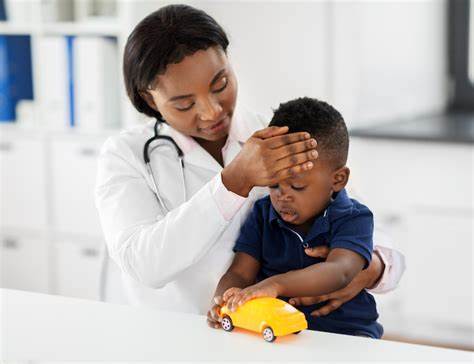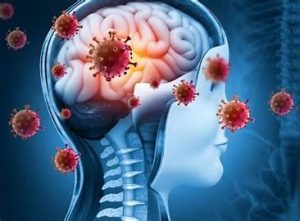Meningitis in Children: Unique Challenges and Care Strategies

Malaria Myths vs Facts
March 27, 2025
10 Silent Symptoms You Shouldn’t Ignore — Early Warning Signs Your Body Might Be in Trouble
April 16, 2025Meningitis in Children: Unique Challenges and Care Strategies

Meningitis in children
Meningitis is a serious and potentially life-threatening condition that causes inflammation of the protective membranes surrounding the brain and spinal cord. While meningitis can affect individuals of all ages, children—especially infants and toddlers—are at higher risk due to their developing immune systems.

Understanding Meningitis in Children
Meningitis in children is typically caused by viral, bacterial, or, less commonly, fungal infections. The most common types include:
- Bacterial Meningitis: A medical emergency that requires immediate treatment. Common culprits include Streptococcus pneumoniae, Neisseria meningitidis, and Haemophilus influenzae type B (Hib).
- Viral Meningitis: Generally, less severe and often caused by enteroviruses, herpes simplex virus, or the mumps virus.
- Fungal Meningitis: Rare but more common in immunocompromised children.
Early Signs and Symptoms

Recognizing meningitis in children can be challenging because symptoms vary by age. Early signs include:
In Infants (Under 1 Year):
- High fever
- Poor feeding
- Irritability or excessive crying
- Bulging fontanelle (soft spot on the head)
- Seizures
In Older Children:
- Stiff neck
- Severe headache
- Nausea and vomiting
- Sensitivity to light
- Confusion or difficulty concentrating
Since symptoms can progress rapidly, parents and caregivers should seek emergency medical attention if meningitis is suspected.
Unique Challenges in Paediatric Meningitis
- Delayed Diagnosis
Meningitis symptoms in young children can be nonspecific, often mimicking flu or other common illnesses. This can lead to delayed medical intervention, increasing the risk of complications.
- Rapid Disease Progression
Bacterial meningitis can cause severe complications, including brain damage, hearing loss, and developmental delays, within hours if untreated.
- Long-Term Complications
Even with timely treatment, some children may experience long-term effects such as:
- Learning disabilities
- Speech or motor skill impairments
- Behavioural changes
Care Strategies for Meningitis in Children
- Immediate Medical Treatment
- Hospitalization: Bacterial meningitis requires urgent intravenous antibiotics and supportive care in the hospital.
- Antiviral or Antifungal Medications: Used if viral or fungal meningitis is diagnosed.
- Hydration and Symptom Management: Fever control and fluid therapy are crucial to stabilize the child.
- Vaccination as a Preventative Measure

Vaccines have significantly reduced meningitis cases worldwide. Key vaccines include:
- Hib Vaccine (Haemophilus influenzae type B)
- PCV13 Vaccine (Pneumococcal conjugate)
- Meningococcal Vaccine (Protects against Neisseria meningitidis)
- Parental and Caregiver Awareness
- Recognizing Symptoms Early: Parents should be educated about meningitis symptoms and when to seek medical help.
- Infection Prevention: Regular handwashing and avoiding close contact with infected individuals can help reduce the risk.
- Rehabilitation and Support for Affected Children
- Physical and Speech Therapy: Helps children with neurological or motor impairments.
- Hearing Aids and Cochlear Implants: May be necessary for those with hearing loss due to meningitis.
- Educational Support: Schools and special education programs can assist children with learning difficulties.
Meningitis in children presents unique challenges, from early diagnosis difficulties to potential long-term complications. However, with timely medical intervention, preventive vaccines, and post-recovery support, children affected by meningitis can lead healthy lives. Parents and caregivers play a vital role in recognizing symptoms and ensuring their children receive the best care possible.
For more information on meningitis prevention and treatment, consult your pediatrician or visit us at any of our branches at Cedarcare Hospital, Ogombo, Agungi, and Ikota.

